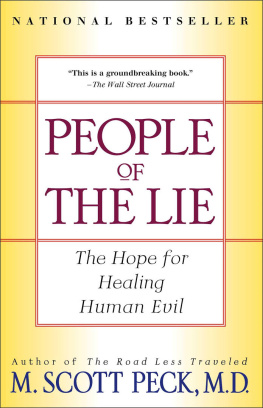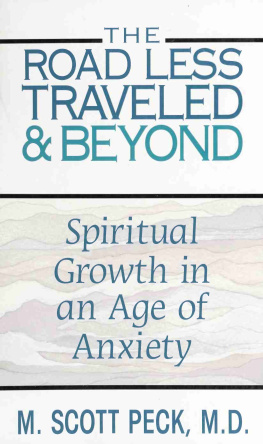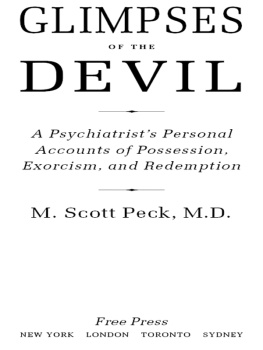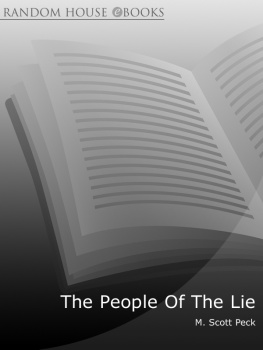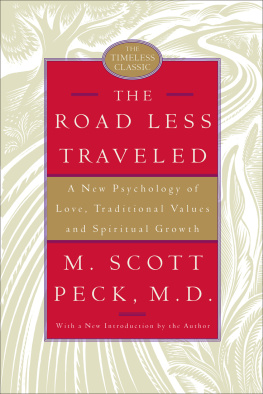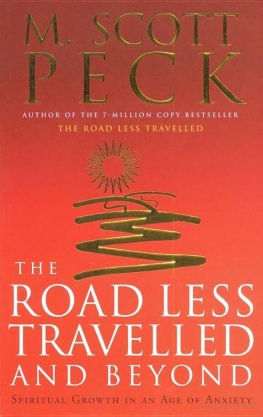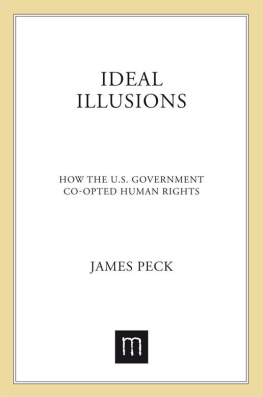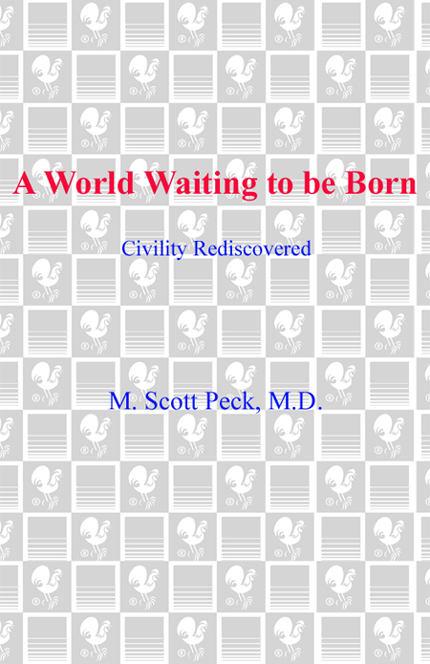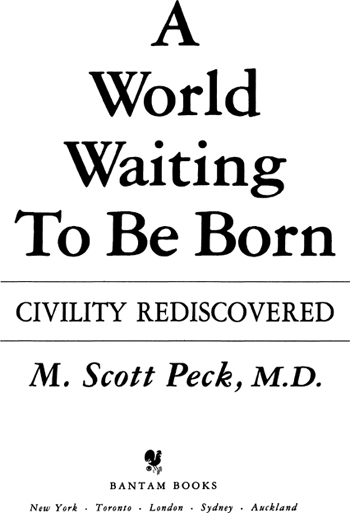ALSO BY M. SCOTT PECK, M.D.
T. S. ELIOT
Four Quartets
Contents
Part One:
CHAPTER 1: Something Is Seriously Wrong
Toward a Redefinition of Civility
CHAPTER 2: Salvation and Suffering
The Ambiguity of Pain and Disease
CHAPTER 3: Selves and Systems
The Reality and Illusion of the Self
CHAPTER 4: The Hole in the Mind
The Lack of Group Consciousness
CHAPTER 5: Enter God, Stage Left
Ethics and Submission
CHAPTER 6: Yes, Virginia, There Is Unconditional Love
Covenant
CHAPTER 7: Tell Them I Came but No One Answered
Vocation
CHAPTER 8: How Not to Waste Your Time
Prayer (or Whatever You Want to Call It)
Part Two:
CHAPTER 9: For the Friction
Marriage and Narcissism
CHAPTER 10: No Place to Go but Up
Marriage and Power
CHAPTER 11: Walking the Tightrope
Marriage and Separateness
CHAPTER 12: Bows and Arrows
Child Raising and Vocation
CHAPTER 13: Karass or Grandfaloon?
The Family as Organization
Part Three:
CHAPTER 14: Whos There?
Roles and Transference
CHAPTER 15: Selling or Saving Your Soul
Vocation and Business
CHAPTER 16: May God Have Mercy on You
The Civil Use of Power in Business
Part Four:EPIPHANY
Community in the Workplace
CHAPTER 17: A Sum Greater Than Its Parts
Community: The Civil Organization
CHAPTER 18: Rewalking the Tightrope
Ethics and Adversarialism in Business
CHAPTER 19: The Politics of Transformation
Introducing Community into Business
CHAPTER 20: No, Virginia, There Is No Quick Fix
Community Maintenance
CHAPTER 21: Utopia Revisited
The Promise of Community in the Workplace
Acknowledgments
I t is particularly appropriate in this book about organizations to note that there is no such thing as a significant solitary endeavor. Although I am identified as its sole author, innumerable souls have played a role in the creation of this work. I cannot personally thank them all for their contributions. Special credit, however, is publicly acknowledged to those who have most directly participated: Ann Harris, my editor, for her wise discernment; Phil Mirvis for his loving and painstaking suggestions; Jonathan Dolger, my agent, for his championing; Kathy Fitzpatrick, my personal manager, for her enthusiasm and research assistance; Gail Puterbaugh, my program director, who helps me on my travels where I get to do most of my yellow-pad work; Susan Poitras, our office manager, who teaches machines what to do with it; yet once again, Lily Peck, general manager, who keeps it all going; and finally the hundreds of FCE pioneers who created the books Epiphany.
M. SCOTT PECK
Bliss Road
New Preston, Connecticut 06777
Part One
THE CORNERSTONES OF CIVILITY
CHAPTER 1
Something Is Seriously Wrong
Toward a Redefinition of Civility
T here is an illness abroad in the land.
On Monday, January 29, 1990, the USA Today newspaper carried a full-page advertisement. Tiny print in the left lower corner identified the advertiser as Dun & Bradstreet (D&B), a large financial analysis firm specializing in The Fine Art of Managing Risk. Otherwise, the entire page was devoted to four brief sentences in bold type:
IM 30,000 FEET OVER NEBRASKA AND THE GUY NEXT TO ME SOUNDS LIKE A PROSPECT .
I FIGURE ILL BUY HIM A DRINK, BUT FIRST I EXCUSE MYSELF AND GO TO THE PHONE .
I CALL D&B FOR HIS COMPANYS CREDIT RATING. THREE MINUTES LATER IM BACK IN MY SEAT BUYING A BEER FOR MY NEW BEST FRIEND .
Something is seriously wrong.
A year earlier, I received a hint as to what is wrongthe nature of the illness involvedwhen I had the opportunity to meet for four days with the Commissioners of Education of the United States. These Chief State School Officers had gathered together to consider a profound and controversial issue: the teaching of values in public schools. During the first day, we listened to scholars present papers on the history of public education in the United States. I was surprised to learn that in the early days of the nation there had been great and heated debate over whether there even should be public education supported by taxation. The debate was resolved on the grounds that in order to sustain a democratic society, public education was required for the widespread teaching of civics.
By civics, our leaders two hundred years ago meant something far broader than a simple intellectual knowledge of the Constitution and legislative processes. Primarily they meant a deep-seated set of values that would be a foundation for responsible citizenshipvalues encouraging interest and involvement in large social issues as opposed to mere self-centeredness, values necessary to maintain the health of democracy.


